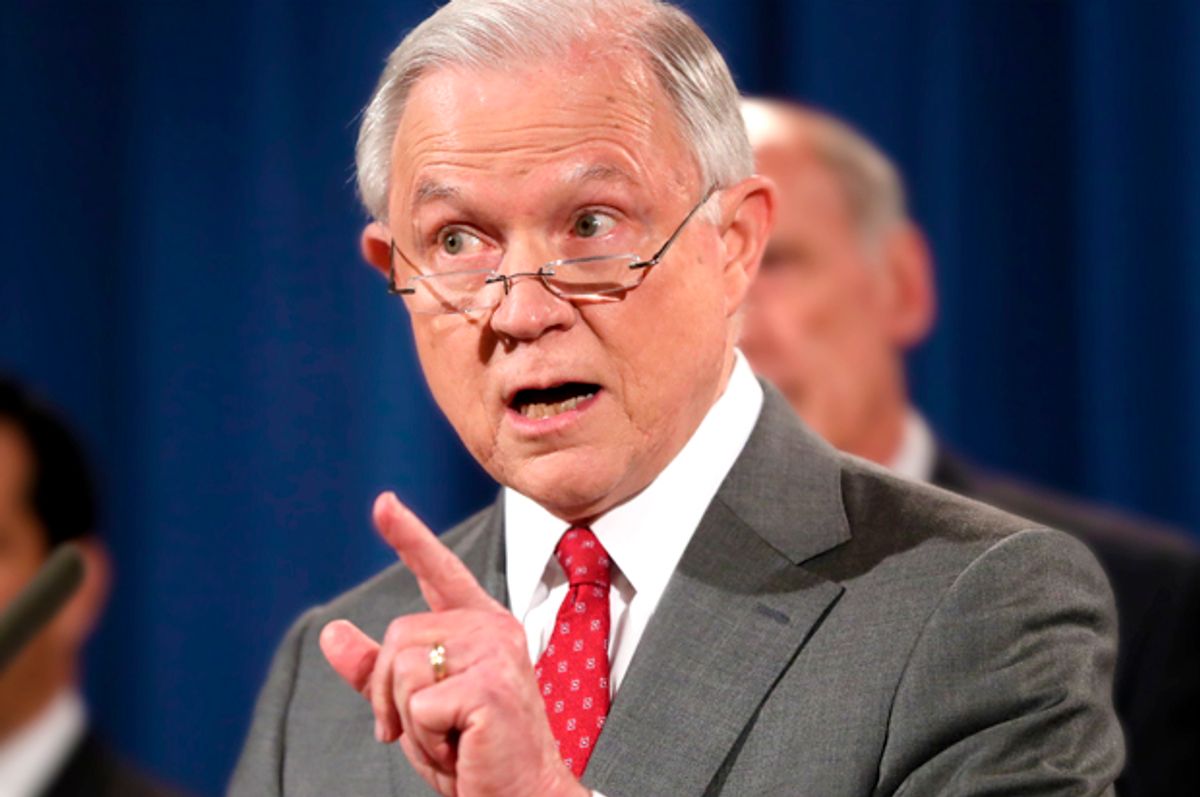Attorney General Jeff Sessions issued a new legal guidance to federal agencies on Friday that governs and expands the already broad protection of religious liberties. The change could impact a series of pending employment, contracting and programming decisions that could go against government regulations.
The memorandum — titled “Federal Law Protections for Religious Liberty” — reminds executive agencies and departments that religious freedom is an indelible right and an essential aspect to American fundamentalism, which “includes the right to act or abstain from action in accordance with one’s religious beliefs,” for “no one should be forced to choose between living out his or her faith and complying with the law.”
The governance comes in response to President Donald Trump’s May 4th executive order which promotes “free speech and religious liberty.” It orders the Internal Revenue Service to “not take any adverse action against any individual, house of worship, or other religious organization” that endorses a political candidate, as there would be no such restrictions against secular organizations. It also orders various government departments to “address conscience-based objections” to covering contraception in employee insurance plans, as is required in the Affordable Care Act.
Among the 20 principles, the newly issued memorandum touches upon the ways in which people and organizations deserve sweeping religious freedom, argues that Americans do not sacrifice their right to religious freedom if operating within the public sphere and that the government cannot interfere with “the autonomy of a religious organization” or “burden any aspect of religious observance or practice.”
One of the most notable — and for some, concerning — points of the memorandum outlines that “religious employers are entitled to employ only persons whose beliefs and conduct are consistent with the employers’ religious precepts."
In a statement Friday, Sessions explained that “as President Trump said, ‘Faith is deeply embedded into the history of our country, the spirit of our founding and the soul of our nation . . . [this administration] will not allow people of faith to be targeted, bullied or silenced anymore.’”
He argued that “the constitutional protection of religious beliefs and the right to exercise those beliefs have served this country well, have made us one of the most tolerant countries in the world, and have also helped make us the freeist and most generous. President Trump promised that this administration would ‘lead by example on religious liberty,’ and he is delivering on that promise.”
Sessions has also sent a memo to the Department of Justice and Attorney's Offices across the U.S. directing them to incorporate the memorandum in “litigation strategy and arguments, operations, grant administration, and all other aspects of the department’s work.”
Though it covers a wide range of protections, the governance is, in many ways, rather vague. Activist worry that it legalizes and encourages discrimination against individuals based on their gender identity or sexual orientation. Many organizations have come forward to denounce the memorandum.
“Yes, the freedom of religion is a fundamental right…but it cannot be used as a shield to permit discrimination against LGBTQ people,” said Vanita Gupta, a former top DOJ official in the Obama administration and CEO of The Leadership Conference on Civil and Human Rights, in a statement to Salon. “We urge the federal courts to reject the radical efforts by this administration to justify discrimination on the basis of religion. We are strengthened as a nation when we work to protect and balance the rights and dignity of all.”
The release of the directive came just hours after Trump announced the Affordable Care Act would no longer require employers to supply insurers with birth control, a follow-up to his 2016 campaign promise.



Shares